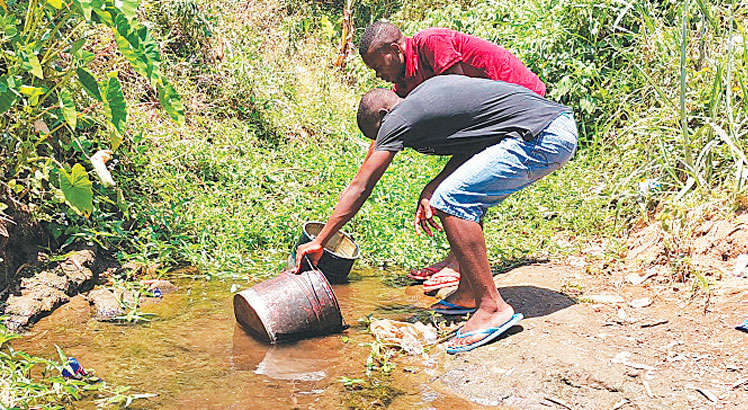Malawi staggers on water, sanitation
Access to safe water and sanitation services continues to be a major challenge driving people into desperation, especially in rural, peri-urban and poor households, Nation on Sunday has established.
It is such desperation that landed 21-year-old Sellina Ganya into the cooler on March 5 2024.
The Bangwe Township resident was arrested following a viral clip showing her breaking a Blantyre Water Board (BWB) water supply pipe in a bid to access the commodity.
Court records show that when Ganya appeared before the Third Grade Magistrate’s Court at Midima, she was charged with malicious damage and fraudulent appropriation of water.

For the first offence, she was required to pay a K200 000 fine or in default serve 12 months in prison.
For the second offence, she was told to either pay a K100 000 fine or serve 12 months in prison.
In mitigation, Ganya said: “I would appreciate a lesser sentence. I am a Form Four student expected to write the Malawi School Certificate of Education examinations.”
She paid the fine, but regretted her actions, attributing them to her family’s desperation for safe water.
In her area, residents either have to buy water from kiosks or draw water from unsafe wells.
Not everyone, however, is able to buy water from kiosks.
When BWB pipes burst, it is ‘Christmas’ as many throng the place to access free water.
This means those using piped water are deprived of the commodity until the pipes are fixed.
“People get tired of sourcing water from wells close to pit latrines,” says Patricia Kantande from the same township.
She normally sends her children to draw water from one of the filth-filled streams as she cannot afford water from a kiosk daily.
According to an Afrobarometer Report dated March 19 2024, there are many similar scenarios happening across the country.
It says safe water supply and sanitation remain a challenge.
This results in unconventional methods of seeking water, including law breaking.
According to the report, 53 percent of Malawians interviewed during the survey felt the Tonse Alliance government is doing very badly on providing water and sanitation services while 46 percent were of the contrary view.
The survey also established that only 28 percent of Malawians use piped water.
Reads the report: “Among enumeration areas visited by Afrobarometer field teams, 56 percent had a piped water system. Fewer than one-third had water systems in Zimbabwe [27 percent], Malawi [28 percent], Mozambique [28 percent], Liberia [28 percent] and Guinea [29 percent].”
The survey also established that five percent of Malawians responded to having access to sewerage services while three percent have toilets inside their homes.
About 56 percent said they have toilets inside their compounds, 35 have toilets outside their compounds and five percent have none available.
It categorised Malawi that puts water as a number three priority despite its importance to the well-being of individuals.
The United Nations says access to safe water, sanitation and hygiene is the most basic human need for health and well-being.
The report, therefore, highlights the struggle Malawi has in the attainment of the UN’s Sustainable Development Goal (SDG) number six which aims to ensure access to safe water and sanitation for everyone by 2030.
Minister of Water and Sanitation Abida Mia in an interview yesterday said despite gaps, government is making progress on reaching out to many.
Water and Environmental Sanitation Network coordinator Willies Mwandira said rural communities depend on borehole whosefunctionality rate is at 63 percent.





